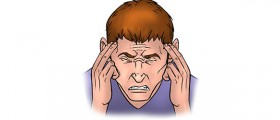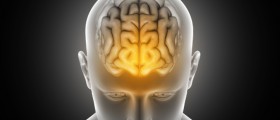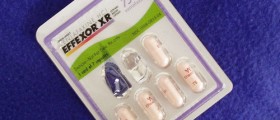
There are many different drugs used in treatment of migraines. Certain medications for other conditions can also help in treatment of migraine or to prevent migraine attacks.
There are two main groups of migraine medications. One group includes drugs used for treatment of migraine attacks that have already started. This is known as acute or abortive treatment and includes pain relievers. The other group includes preventive medications that help to reduce the severity and frequency of future attacks. These drugs have to be taken regularly. Medications for Pain Relief
Pain relievers are the most effective if are taken as soon as migraine attack begins. Also, after taking a pain reliever a sufferer should rest or sleep in a dark room. Here is the list of most commonly used pain relievers for treatment of migraine:
Anti-Inflammatory Medications
Non-steroidal anti-inflammatory medications (NSAIDs) like ibuprofen, Aspirin and paracetamol can help with mild to moderate migraines. These medications should not be used frequently and for extended period of time to avoid ulcers, gastrointestinal bleeding and rebound headaches.
Triptans
Triptans are specifically designed for treatment of migraine. Triptans like sumatriptan, rizatriptan, naratriptan, zolmitriptan and almotriptan help to reduce pain, nausea and sensitivity to light and sound. People who have had stroke or heart attack should not take triptans. Side effects include dizziness, nausea and vomiting.Ergot
Ergotamine is not as effective as triptans but can help patients who experience pain for more than 48 hours. Dihydroergotamine is more effective and causes less adverse effects comparing to ergotamine. Anti-Emetics
Anti-emetics are used for treatment of nausea caused by migraine. Commonly used anti-nausea drugs are metoclopramide and prochlorperazine. Preventive Migraine Medications
Preventive therapy is used when a person experiences two or more severe migraine attacks per month, if painkillers are ineffective or if numbness, weakness and a prolonged aura accompany migraine.
Preventive medications are usually taken on a daily basis. They help to reduce severity, frequency and duration of migraine attacks but do not completely eliminate headaches. Also, medications for symptom relief become more effective when taken in combination with preventive therapy. Commonly used preventive medications are:
Cardiovascular medications
Frequency and severity of migraines can be reduced with beta blockers, calcium channel blockers like verapamil and antihypertensive medications such as lisonopril and Candesartan.
Antidepressants
The most effective antidepressants in prevention of migraines are tricyclic antidepressants like amitriptyline, nortriptyline and protriptyline. Tricyclic antidepressants act by altering serotonin levels.
Anti-Seizure Medications
Frequency of migraines can be also reduced with anti-seizure drugs such as Divalproex, topiramate and gabapentin. However, anti-seizure drugs can cause nausea, vomiting, diarrhea, cramps, dizziness and hair loss when taken in high doses.
Botox
Botulinum toxin type A (Botox) is not commonly used in treatment of chronic migraines. However, some patients benefit from Botox injections given into the forehead and neck.
















Your thoughts on this
Loading...